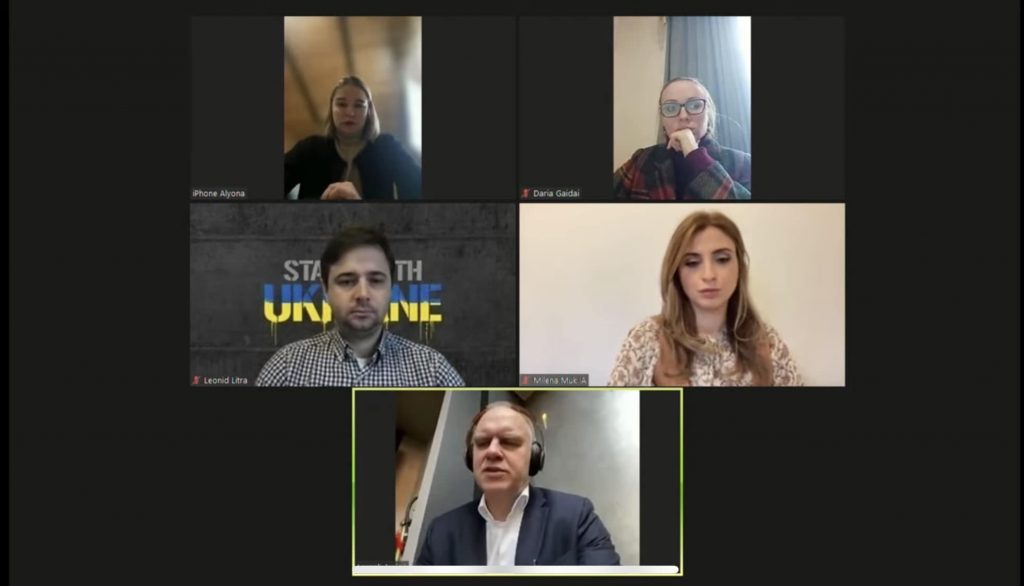
Although Ukraine received the EU candidate status only in June 2022, it is already preparing to start accession negotiations with the EU. And it does this in two ways: firstly, it is implementing seven recommendations that Kyiv received with the candidate status. Secondly, it is preparing for negotiations with the EU and actively studies the experience of other countries that have already gone through this path.
In the first case, the New Europe Center actively monitors the implementation process of 7 European reforms in its “Candidate Check” monitoring. The last issue of monitoring showed both positive dynamics in the implementation of many recommendations, as well as specific problems in certain directions.
As for the second point, NEC decided to study the experience of 4 EU member states (Poland, the Czech Republic, Latvia and Croatia) and 2 candidates (Montenegro and North Macedonia) and, based on 37 conducted interviews and meetings, developed relevant recommendations for the government of Ukraine.
The document “Preparing for accession talks with the EU: tips and tricks for Ukraine” was presented on December 9 by its authors – the Director of the New Europe Center Alyona Getmanchuk, and NEC Senior Research Fellow Leo Litra. During the event, Ukrainian, Polish and Montenegrin experts shared their own experience and advised on the countries’ participation in the process of EU accession negotiations.
Please find the recording of the event in Ukrainian here and in English here.
We bring to your attention the key messages of the speakers from the presentation:
Alyona Getmanchuk, Director at New Europe Center
We understand at this stage that to be successful and start accession negotiations, we have to be hyper-proactive, because no one from Brussels or the EU member states will try to speed up Ukraine’s accession to the EU.
Implementation of seven EU recommendations, which resonate with the vital cluster in the negotiations(fundamentals cluster), is sort of a training for Ukraine on how it can cope with the EU criteria, which will be very numerous during the negotiations. Thanks to these seven recommendations, we have the experience of how challenging it is to fulfill some vaguely formulated criteria. Therefore, we have to do our best to take this and the experience of other candidates, who have faced this in the negotiation process, into account.
The whole negotiations process looks like a constant effort of the candidate country to prove that its democratic institutions are working and that a market economy is functioning. For Ukraine, this is an opportunity to make qualitative and sustainable reforms.
According to one of our interlocutors within research interviews, the process of joining the EU is a way to protect us from ourselves: to protect us from some things that we do consciously or out of inertia in terms of anti-corruption rollbacks, undermining democratic institutions and the rule of law.
Unfortunately, the new methodology of EU enlargement has made it possible for any EU member state to block the start, the opening or closing of negotiations. For Ukraine, this risk exists in relations with Hungary, and it will be vital for us to change the new methodology so that one country cannot block the negotiation process, as was the case with North Macedonia and Greece.
One of the reasons why Ukraine’s accession will be unique is that it will coincide in time with the reconstruction of Ukraine and its reformation as a future member of the EU. Therefore, we need to emphasize to member states that by investing in Ukraine, they are investing in a future member of the EU.
Leo Litra, Senior Research Fellow at the New Europe Center:
Having examined the experience of other countries we have learnt that one can basically negotiate very few things with the EU. We can negotiate the transition terms once we adopt their acquis as it was in the case of the Association agreement with the EU.
4 key components which are necessary for the negotiation process:
Consensus (political and social). It is necessary to involve not only the government but also some civil society members in the negotiation working groups.
People. People involved in negotiations should not be replaced in the process. Management of the process should be in the hands of professionals, who understand the issue of EU integration, speak the “Brussels language”, etc. In particular, it is worth involving young people in the negotiations – for example, in Croatia, the average age of persons engaged in negotiations was 27 years.
Institutions and advocacy. Ukraine needs to promote its interests permanently: step-by-step integration, changes to the new methodology (merit-based accession process). This needs to be communicated not only in Brussels, but also in member states (especially those, which have some reticence towards Ukraine’s becoming the EU member state) because they have a political influence on decision-making in the EU.
Daria Gaidai, Former advisor to Poland’s chief negotiator with the EU:
In Ukraine, the formation of the European integration reserve of experts, who will further work on the negotiation process, has begun. We are currently trying our best to attract young professionals and lawyers. We cooperate with several institutions to improve the qualifications of those already working in the field of European integration.
The preparation of Ukraine’s answers to the European Commission’s questionnaire happened due to unprecedented mobilization of efforts, and our European partners noted it. Mobilization is the resource we need to use when preparing for negotiations.
When we talked to former negotiators in several countries, they told us that it is crucial to have people who know this specific diplomatic language, called the “Brussels language”.
Milena Muk, Public Policy Researcher at Institute Alternative:
The Montenegro case is unique because of the inclusion of civil society into the working group on the EU accession talks since the very beginning. It mostly benefited сivil society organizations because we managed to build our own capabilities.
Benchmarks are a vital aspect of the EU membership talks. And these benchmarks should capture the implementation of the law, not only technical alignments.
Gradual integration is a venue to negotiate because the new methodology just states it as one of the aims, while not providing a clear roadmap on how this gradual integration will take place. All aspiring countries should take a proactive role to develop their own roadmap for gradual integration.
Leszek Jesien, Former advisor to Poland’s chief negotiator with the EU:
Size of the country willing to join the EU matters in positive and negative senses. The disadvantage is the necessity for others to make room for a big country in terms of money. Big countries are coming with big needs. At the same time, a big country means big business and big market opportunities.
These are the things to be streamlined with those who might be not that forthcoming for Ukraine’s EU membership. So I would advise using the advantage of being big by saying to the others: “Hi guys, we are a country with big opportunities and let’s cooperate”.
Do not neglect the fact that there are small players in the EU, specifically the small countries, but also small businesses, which might hamper accession. So have eyes open to all of them and talk to them, but specifically build the coalition with big companies and countries around the market opportunities.







